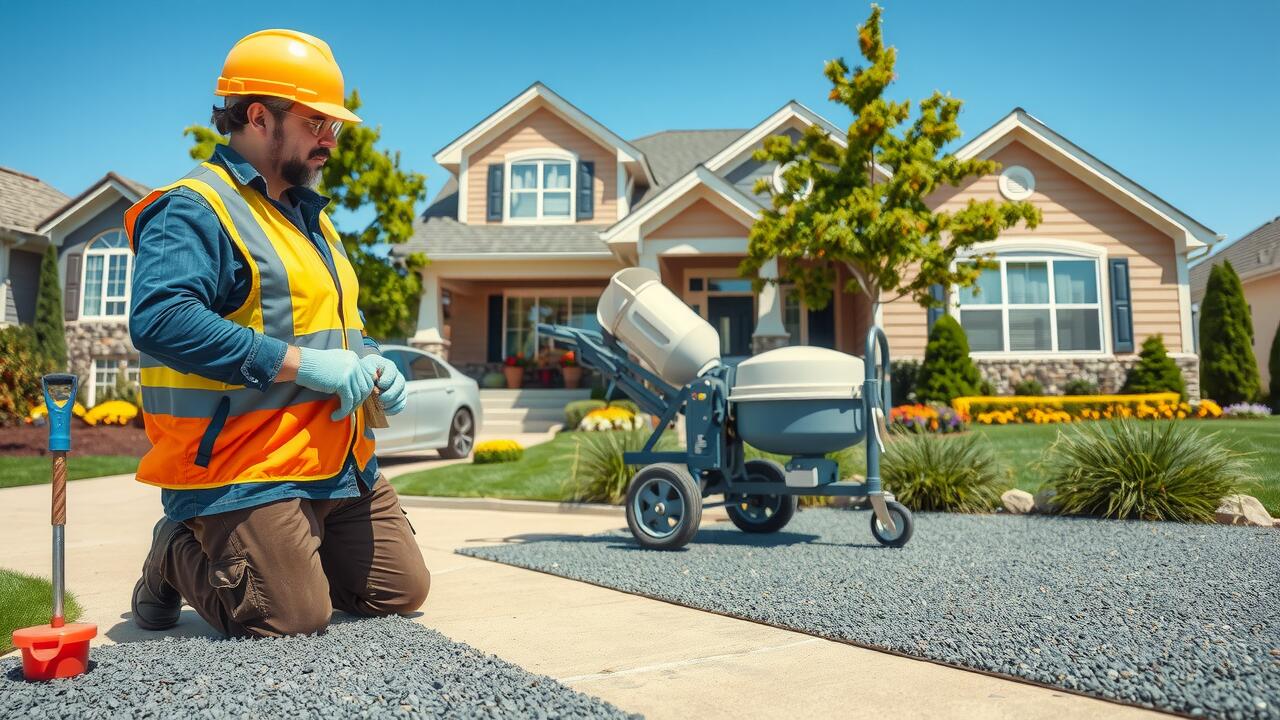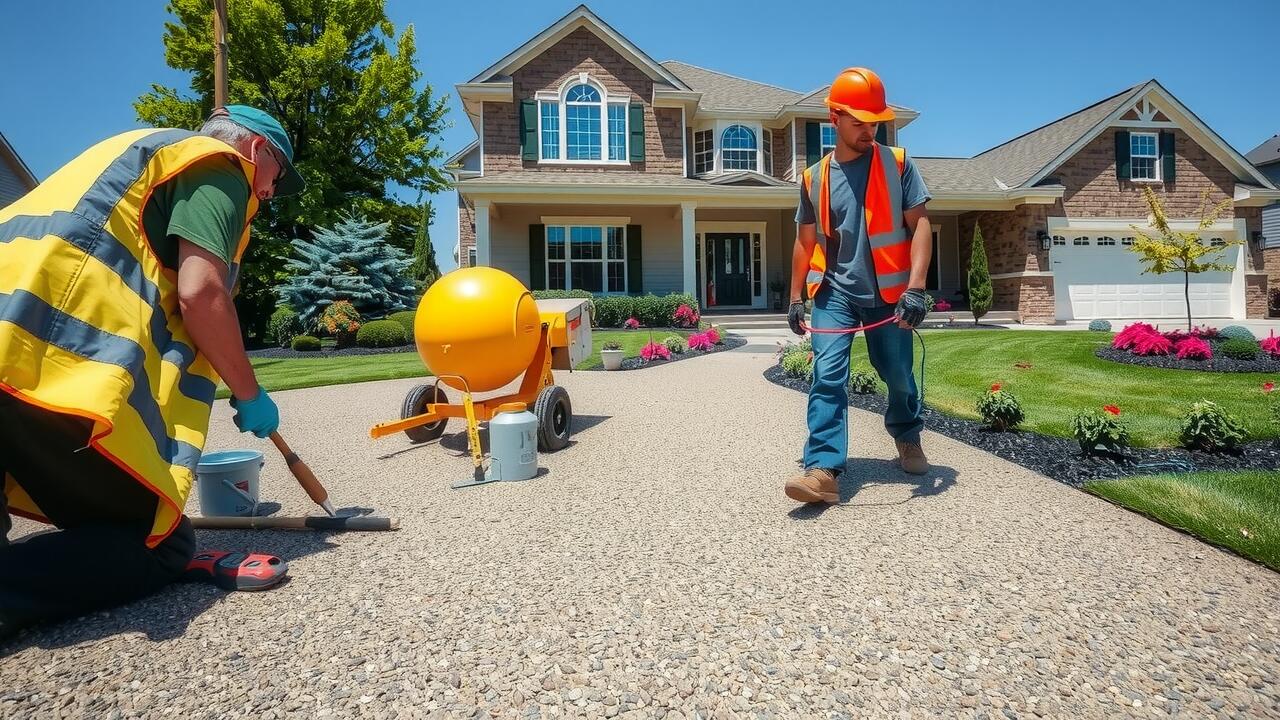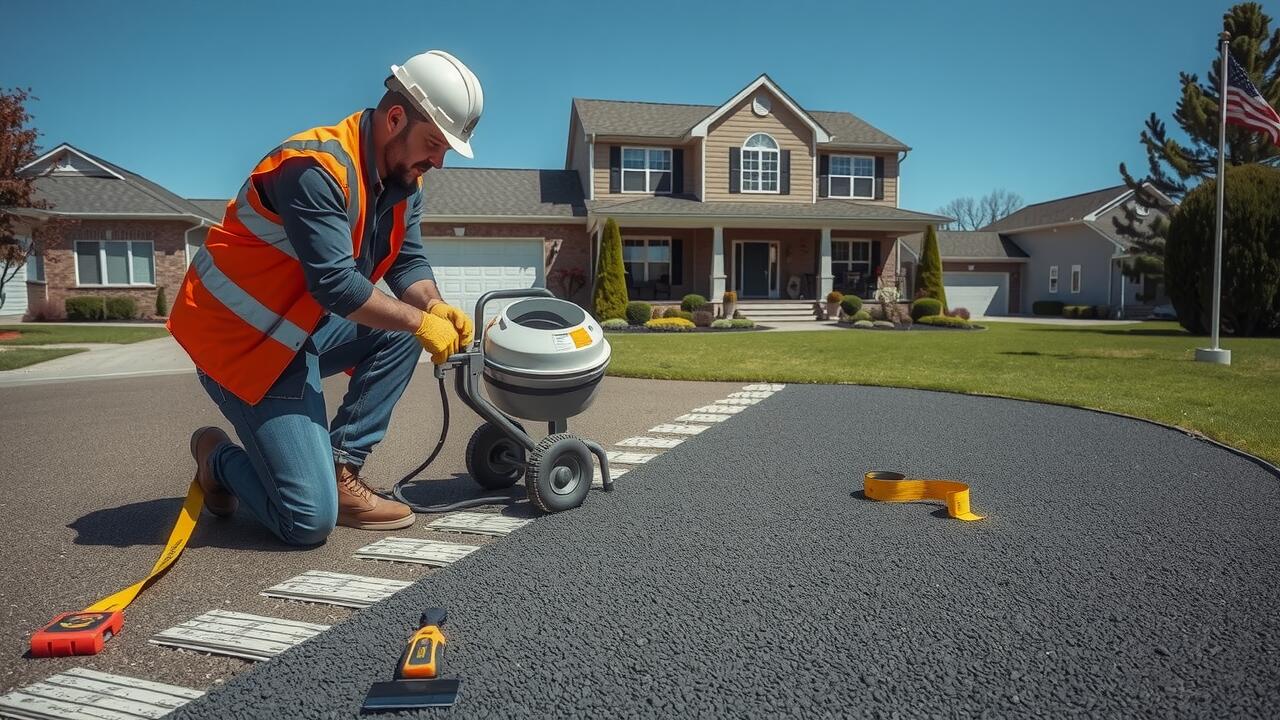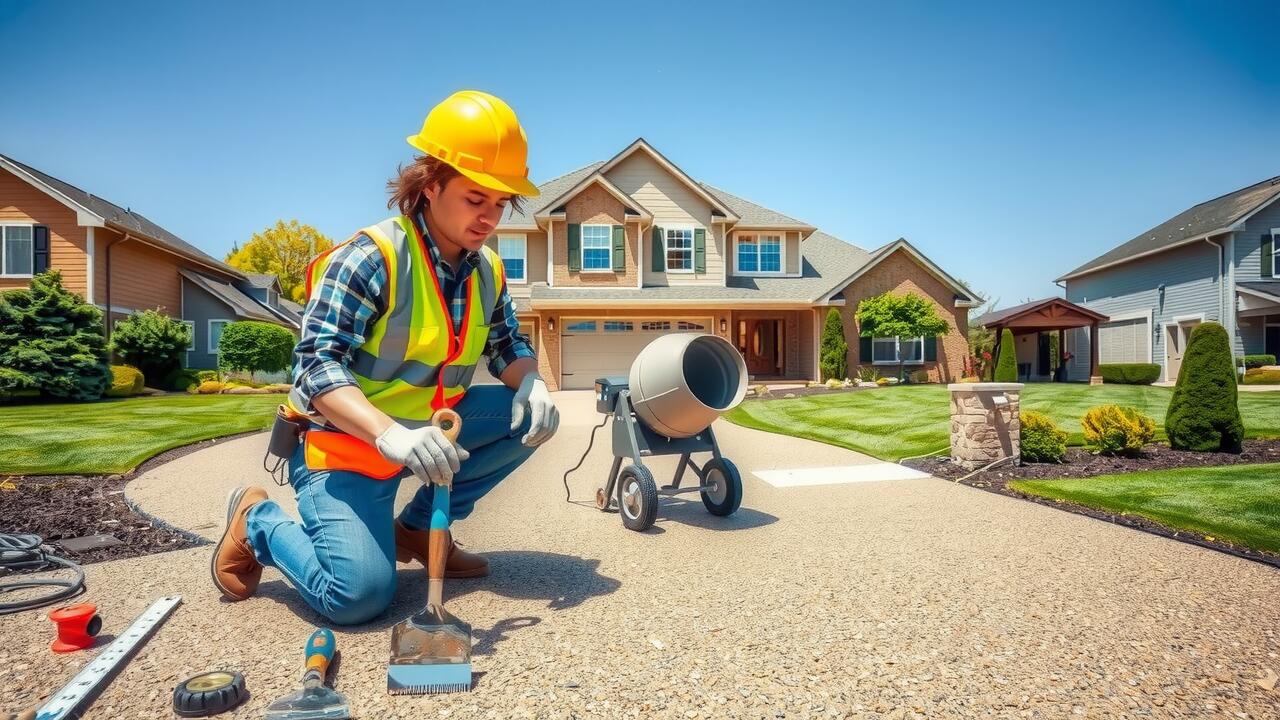
Table Of Contents
Aesthetic Choices
When considering aesthetic choices for driveways, concrete and asphalt offer distinct appearances that can complement various architectural styles. Concrete can be stamped or stained to mimic the look of brick or stone, providing a customizable finish. This versatility allows homeowners to personalize their driveways according to their preferences, enhancing curb appeal. Asphalt, while traditionally associated with a more utilitarian look, can also be enhanced with sealers and colors to achieve a sleeker appearance.
In regions like Minnesota, where driveway installation is common, homeowners often evaluate how the appearance of these materials aligns with their landscaping and home design. Concrete's ability to blend with more formal or contemporary homes stands in contrast to the rougher, more casual look of asphalt. The choice may depend on aesthetic desires, but it's also influenced by local architectural trends and neighborhood styles, making the decision more than just a practical one.
Design Options for Concrete and Asphalt
Concrete offers a wide variety of design options that can enhance the aesthetic appeal of any property. From stamped patterns to colored finishes, homeowners have the flexibility to customize their driveways, patios, and walkways extensively. Many choose concrete for its versatility, as it can mimic the look of bricks or stones, providing an elegant touch to any outdoor space. In Minnesota, the popular Minnesota Driveway Installation often showcases intricate designs that stand out in residential neighborhoods.
Asphalt, on the other hand, tends to be more utilitarian, focusing on durability and functionality. While it may not offer as many decorative choices as concrete, asphalt can still be tailored with sealers and finishes that improve its appearance. Driveways can be installed quickly using asphalt, making it a favored choice for homeowners needing immediate functionality. The practicality of asphalt is particularly appealing in areas with harsh weather conditions, a consideration often highlighted during Minnesota Driveway Installation projects.
Repair Costs
Repair costs are an essential consideration when choosing between concrete and asphalt for your driveway. Each material has distinct maintenance and repair needs that can impact overall expenses over time. Generally, asphalt may require more frequent repairs due to its susceptibility to cracking and distresses caused by extreme weather. Concrete, while sturdier, can also suffer from issues such as chipping or settlement but tends to have a longer lifespan before significant repairs are necessary.
Specifics in Minnesota Driveway Installation can further influence repair costs. For instance, the freeze-thaw cycles common in Minnesota can create unique challenges for both materials. Asphalt may require seal coating to protect it from the harsh elements, adding to the long-term expenses. Conversely, concrete driveways in the region may necessitate less frequent repairs but could incur higher initial costs, making the evaluation of repair needs crucial for homeowners when deciding between the two.
Expenses Associated with Fixing Each Material
When it comes to repair costs, asphalt typically has the edge over concrete. Patching small cracks or holes in asphalt is often quick and affordable, making it easier for homeowners to manage. For those looking at projects like Rogers, Minnesota Driveway Installation, the cost-effectiveness of repairs can play a significant role in the overall budget. Regular maintenance is also less intensive for asphalt, which can prolong its lifespan and keep expenses low.
Conversely, concrete repairs can be more complicated and expensive. Fixing larger cracks or significant damage often requires professional help, driving up the costs substantially. While concrete is usually more durable initially, when it does require repairs, they may involve labor-intensive processes that can strain budgets. Homeowners in areas like Rogers, Minnesota, must weigh these factors when considering driveway installation options to ensure they make the most financially sound choice.
Noise Reduction
When considering noise reduction, asphalt offers some advantages over concrete. Asphalt surfaces tend to absorb sound more effectively, which can lead to a quieter environment for residential areas. This characteristic makes it a popular choice for homeowners looking for a peaceful atmosphere, especially in neighborhoods prone to traffic noise.
In locations such as Plymouth, Minnesota, driveway installation using asphalt can be particularly beneficial. The material's inherent properties help mitigate the sound of vehicles traveling over it, contributing to a serene outdoor experience. Although concrete is durable and versatile, its harder surface can amplify noise, making it less appealing for those sensitive to sound disturbances.
Sound Absorption Properties of Concrete and Asphalt
Concrete and asphalt have distinct properties when it comes to sound absorption. Concrete surfaces tend to reflect sound more effectively than asphalt, resulting in a potentially noisier environment. The hard, smooth finish of concrete can amplify noises from vehicles and foot traffic, making it less desirable in areas where noise reduction is a concern. In contrast, asphalt offers a more forgiving surface that absorbs sound better. This characteristic can lead to a quieter experience in residential neighborhoods.
For homeowners considering driveway options, sound absorption may play a significant role in decision-making. In locations such as Rogers, Minnesota, driveway installation choices should take into account the surrounding environment and how noise levels may impact quality of life. Selecting asphalt for its sound-dampening qualities could enhance comfort, particularly in busy areas. Conversely, if durability and aesthetics are prioritized over noise, concrete might be the preferred option despite its acoustic challenges.
FAQS
Which is generally cheaper to install, concrete or asphalt?
Asphalt is typically cheaper to install than concrete, mainly due to lower material costs and faster installation times.
Are there long-term cost differences between concrete and asphalt?
Yes, while asphalt may have a lower initial cost, concrete generally lasts longer and requires less frequent repairs, potentially making it more cost-effective over time.
How do repair costs compare between concrete and asphalt surfaces?
Repair costs for asphalt can be lower for minor issues, but concrete repairs can be more expensive for significant damage; however, concrete usually requires fewer repairs overall.
Which material requires more maintenance, concrete or asphalt?
Asphalt generally requires more maintenance, such as sealing and resurfacing, while concrete is more durable and needs less frequent upkeep.
How do aesthetic options differ between concrete and asphalt?
Concrete offers a wider variety of design options and finishes, including decorative patterns and colors, whereas asphalt is typically limited to its standard black surface.


